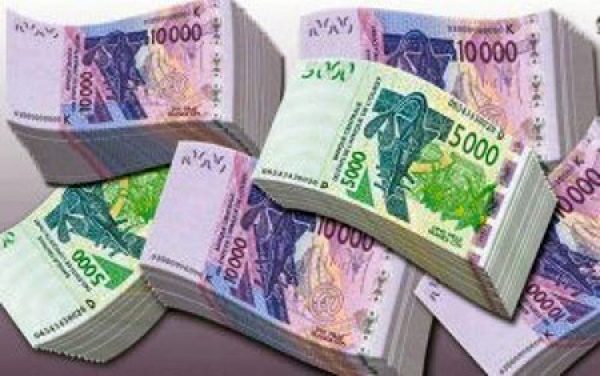The information spread on social networks on March 9 is false, the Central Bank announced.
The Central Bank of West African States (BCEAO) firmly denies through a press release, the information spread on social networks announcing the devaluation of the CFA franc.
The information spread on social networks on March 9, 2022 about the devaluation of the CFA francs is false, the Central Bank of West African States (BCEAO) said in a press release, specifying that the exchange rate between the euro and the CFAF remains unchanged at €1 = CFA F655.957.
It also reminds that the official exchange rates of the main currencies are published daily on its website, which can be consulted at www.bceao.int under the heading Statistics – “Currency rates against the CFA Franc.”
BCEAO therefore invites the population to be extremely vigilant and to refer only to the official channels of communication used by the issuing institution.
In this regard, it recalls that all its communiqués are published on its website, as well as in the official print and audiovisual media of the West African Monetary Union (UEMOA) member states.
The apex bank states that it reserves the right to initiate legal proceedings against the authors and accomplices of acts and messages likely to undermine the monetary signs that are legal tender in the member states of the WAMU.
Created by France, then a colonial power, in 1945, the CFA franc was initially called the Franc des Colonies Françaises d’Afrique. Fifteen years later, thanks to the independence movement in these colonies, it became the ‘Franc de la Communauté Financière Africaine in West Africa’ and the ‘Franc de la Cooperation Financière en Afrique centrale’ in the region of the same name.
In addition to the Comoros, the CFA franc is used by citizens of twelve other West and Central African countries.
The first to be united in the West African Economic and Monetary Union (UMEOA) are Benin, Burkina Faso, Cote d’Ivoire, Guinea-Bissau, Mali, Niger, Senegal and Togo. Their issuing institution is the Central Bank of West African States (BCEAO), created in 1962 and headquartered in Dakar, Senegal.
The second group of countries organized within the framework of the Economic and Monetary Community of Central Africa (CEMAC) are Cameroon, Central African Republic, Congo, Gabon, Equatorial Guinea and Chad. They too have an issuing institution: the Bank of Central African States (BEAC) created in 1972 and headquartered in Yaoundé, Cameroon.
CD/fss/abj/APA


